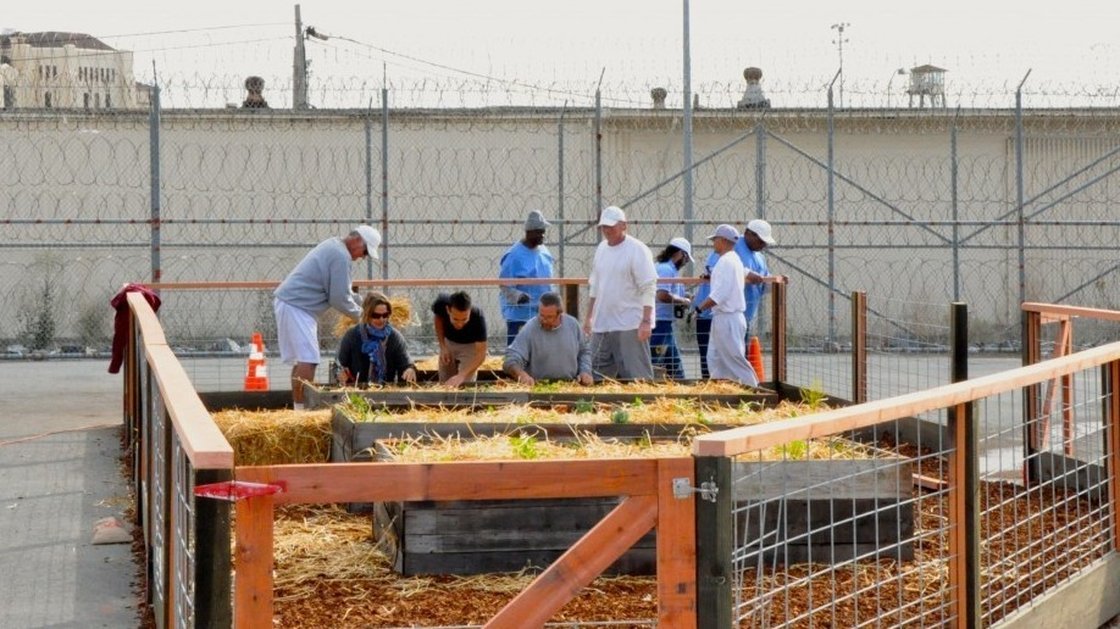Prison Inmates Grow and Donate 163 Tons of Produce


The value of gardening is one that’s often underestimated and under-appreciated. One recent study found gardening can reduce your risk of dying from all causes by as much as 30%, and you only need to ask a gardener about how their hobby effects their mood—connecting with the earth and cultivating new life is healing for the mind and spirit. So it’s no wonder that prisons across the country are finding gardens behind the razor-wire to be effective at producing food and reducing recidivism. In fact, inmates in one Missouri prison donated a whopping 163 tons of produce to local food pantries, shelters, churches, nursing homes and schools this year.
Vegetable gardens are popping up at prisons across the country. These gardens are providing inmates with a reason to spend time in the sun, satisfying work, marketable skills, and producing fresh, healthful foods. They are also, in some cases, providing local charities with great produce to deliver to community members in need.
As mentioned, one prison garden in Missouri was able to send 163 tons of food to various people in need. There, all prison gardens flourish with seeds donated to the program. In return, all of the harvest is donated back to the community.
“This year’s record harvest is a testament to the hard work and dedication of our staff and offenders who are helping the less fortunate throughout Missouri,” said George Lombardi, Missouri Department of Corrections director. He said in a news release that the program provides offenders “the means to help repay their debt to society, and it teaches them the value of compassion, which is a quality many of them lack in their lives.”
In addition to spreading healthful food, the programs are helping these men and women get back on their feet when they leave. Planting Justice, an organization that oversees the California prison gardens, reports the recidivism rate (the rate at which an offender returns to prison within 3 years of leaving) is only about 10%. This is compared with the 40% recidivism rate reported by the Pew Charitable Trusts for prisons across the country.
Further, these inmates leave prison knowing how to grow food. In California, that’s translated to several of the program participants being offered employment upon their release. But, as many of them move back into at-risk communities—where food deserts are common and ill health is the norm—they could bring something even better than a single job.
Low income communities are both hit hardest by the oppressive criminal justice system and the broken US food system. By teaching people within these communities how they can provide their own fresh produce, they stand a fighting chance to break the expectations of the country-at-large, expectations that say they are more likely to suffer from obesity and obesity-related disease.
Gardening isn’t only good for the people reaping the harvest and eating the food, but it’s good for those who get their hands dirty too.

Great job, Missouri! Contrast this with Arizona’s “Tent City” prison I saw on TV earlier today :/